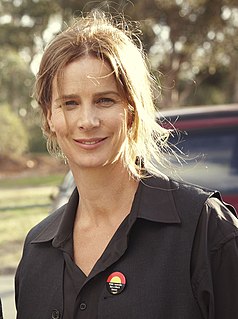A Quote by Ian Mcewan
Imagining what it is like to be someone other than yourself is at the core of our humanity. It is the essence of compassion, and it is the beginning of morality.
Related Quotes
Nothing helps us build our perspective more than developing compassion for others. Compassion is a sympathetic feeling. It involves the willingness to put yourself in someone else's shoes, to take the focus off yourself and to imagine what it's like to be in someone else's predicament, and simultaneously, to feel love for that person. It's the recognition that other people's problems, their pain and frustrations, are every bit as real as our own-often far worse. In recognizing this fact and trying to offer some assistance, we open our own hearts and greatly enhance our sense of gratitude.
There, Master Niketas,’ Baudolino said, ‘when I was not prey to the temptations of this world, I devoted my nights to imagining other worlds. A bit with the help of wine, and a bit with that of the green honey. There is nothing better than imagining other worlds,’ he said, ‘to forget the painful one we live in. At least so I thought then. I hadn’t yet realized that, imagining other worlds, you end up changing this one.
In contrast, compassion manifests in us as the offering of kindness rather than withdrawal. Because compassion is a state of mind that is itself open, abundant and inclusive, it allows us to meet pain more directly. With direct seeing, we know that we are not alone in our suffering and that no one need feel alone when in pain. Seeing our oneness is the beginning of compassion, and it allows us to reach beyond aversion and separation.
Common sense! It's nothing more than common sense for the preservation of our culture, the preservation of our country, the preservation and growth of our economy. And yet Jim Acosta and Glenn Thrush - and everybody in the press corps and practically every other Democrat - hears this and the only reaction they have is, "No compassion! No compassion for the less fortunate! No compassion for the victims of the world!"
Although I'm not Christian, I was raised Christian. I'm an atheist, with a slight Buddhist leaning. I've got a very strong sense of morality - it's just a different morality than the loud voices of the Christian morality.... I can't tell you how many films I've turned down because there was an absence of morality. And I don't mean that from any sort of Judeo-Christian-Muslim point of view. I'm not saying they're wrong and can't be made. But, fundamentally, I'm such a humanist that I can't bear to make films that make us feel humanity is more dark than it is light.
The essence of love and compassion is understanding, the ability to recognize the physical, material, and psychological suffering of others, to put ourselves "inside the skin" of the other. We "go inside" their body, feelings, and mental formations, and witness for ourselves their suffering. Shallow observation as an outsider is not enough to see their suffering. We must become one with the subject of our observation. When we are in contact with another's suffering, a feeling of compassion is born in us. Compassion means, literally, "to suffer with."







































